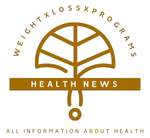Pfizer and GSK have a green light to distribute their RSV vaccines to older adults, the Centers for Disease Control and Prevention said Thursday.
That made the two vaccines the first for RSV to become publicly available in the US
The shots are expected to roll out in the fall — before the next RSV season, which typically peaks in the winter — the CDC said.
Last week, an advisory committee to the CDC decided that adults ages 65 and up may get one of the newly FDA-approved RSV vaccines in consultation with doctors. The committee voted 9-5 in favor of the recommendation.
The group also voted to recommend shots for adults ages 60 to 64 based on individual risk levels and in consultation with doctors.
The CDC’s director, Dr. Rochelle Walensky, endorsed the panel’s recommendations Thursday — the final step before the shots could become available to the public.
Respiratory syncytial virus causes a lower respiratory illness that is generally mild for most healthy adults. But in serious cases, it can lead to pneumonia or bronchiolitis, which inflames the airways and clogs them with mucus.
Older people are particularly vulnerable to severe outcomes: RSV kills up to 10,000 people ages 65 or older every year in the US
The Food and Drug Administration approved Pfizer’s and GSK’s shots last month. So far, they are the first and only RSV vaccines to have earned the agency’s approval.
Walgreens said it expects to offer the new vaccines at pharmacies across the country in time for the next respiratory illness season. Eligible recipients will be able to make appointments online, over the phone or through the Walgreens app once vaccines are available, the company said. CVS Pharmacy said it would also work with vaccine manufacturers to ensure access to RSV shots at more than 9,000 locations.
The FDA approved GSK’s RSV vaccine, called Arexvy, based on the results of a late-stage clinical trial that showed that a single dose lowered the risk of symptomatic illness by 83% and of severe illness by 94%. More recent data presented to the CDC showed that protection against symptomatic illness fell to 77% by around 14 months after vaccination, while protection against severe illness fell to 85%.
Pfizer’s single-dose vaccine, Abrysvo, was approved based on a similar trial in which it reduced the risk of symptomatic illness by as much as 86%. The company’s latest data showed that protection decreased slightly by around 18 months after vaccination, although it was still as high as 79%.
Both vaccines produced mild side effects in some recipients, including injection site pain, fatigue and muscle pain.
In evaluating the safety of Pfizer’s vaccine, the FDA identified one case of Guillain-Barré syndrome, a rare neurological disorder, and one case of Miller Fisher syndrome, a rare nerve disease related to Guillain-Barré.
The FDA also identified one case of Guillain-Barré that was potentially related to GSK’s vaccine, as well as a higher number of incidences of atrial fibrillation (irregular heart rhythm) among vaccine recipients relative to the trial’s control group.
Some members of the CDC advisory committee last week highlighted a lack of data about how well immunocompromised people are, those with underlying health issues and people over age 75 would tolerate the vaccines.
Members also expressed concern about price. GSK said a single dose would cost $200 to $295, and Pfizer estimated that a single dose would cost $180 to $270. (Those prices, though, do not reflect what insured patients would pay.)
In addition to older adults, RSV can pose a major health threat to infants. Two tools to protect babies from the virus could become available before the fall, as well.
An independent advisory committee to the FDA voted last month to recommend Pfizer’s maternal RSV vaccine, which is given to pregnant mothers to protect their infants from RSV. The vaccine is the same formulation as Pfizer’s shot for older adults.
The FDA advisory panel this month also recommended an injectable drug that can protect infants up to 2 years old from RSV. The pharmaceutical giant AstraZeneca developed the monoclonal antibody drug, called nirsevimab, in partnership with Sanofi. It is administered as a single injection and functions similarly to a vaccine.
CORRECTIONS (June 22, 2023, 10:20 am ET): A previous version of this story mischaracterized the strength of the committee’s recommendation. They determined that older adults “may” get the vaccines, not that they “should.”
